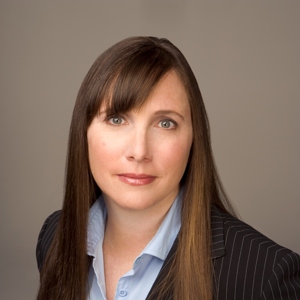Does Being a Spokesperson Require You To…Speak?
The New York Times published a profile piece this week about Laurie Goldberg, the head spokesperson for the cable channel TLC.
The story, titled “In Speaking For TLC, The Least Said Is Best,” highlighted Ms. Goldberg’s reluctance to speak on the record with reporters. Regarding a controversy over the TLC show “All-American Muslim,” for example, writer Brian Stelter reports:
“Ms. Goldberg said almost nothing on the record about the controversy, lest she spur more coverage. But behind the scenes she was trying to influence reporters’ views of the mostly imaginary boycott.”
Typically, a spokesperson who refuses to comment is punished by the press. But Stelter concludes:
“Despite all its controversial shows, TLC’s brand has remained mostly unblemished these last few years. That may be in part because while Ms. Goldberg is genial and helpful with reporters off the record, she routinely doles out no-comments to them on the record, thereby refusing to make big stories bigger. She declined to be interviewed on the record for this story.”
My first reaction was to reading about Ms. Goldberg’s approach was to give her the benefit of the doubt. After all, it’s hard to argue with success, and if her tactics are working, who am I to criticize her unconventional approach?
But the more I considered her strategy, the more it bothered me: Doesn’t being a spokesperson mean that you should be willing to speak, on the record, to reporters?
TLC’s refusal to speak on the record likely leads to reporters writing, “A spokesperson for TLC refused to comment.” That line is often dangerous, since it leads readers to conclude that the channel’s critics must be right. (If they weren’t, wouldn’t TLC refute the charges?)
I have a tough time understanding why Ms. Goldberg’s “no comment” is better than my approach of commenting without commenting. It’s almost always better to say something, anything, to avoid a reporter writing that you refused to comment. A bland quote that says little is better than no quote, which says a lot.
One final point: By using such an unusually aggressive strategy, Ms. Goldberg made herself – and her shop – the story. Funny, isn’t it? Her approach, designed to prevent making “big stories bigger,” landed her a profile piece in the New York Times.
What do you think? Is Ms. Goldberg’s approach effective? Do you think it’s an acceptable P.R. practice?





Brad,
Interesting analysis. I fear my judgment may be biased due to my disdain for so-called “reality TV.” I admit that I lump it all into a category of television that simply highlights the cheapest or most sensational of controversies as well as the worst humanity has to offer.
That said and to answer the questions, one could argue the effectiveness of the approach since TLC is still getting ink, the show is still getting promoted, and the story topics are deflected enough from the completely negative to spark viewer curiosity. Her approach apparently is designed to generate just enough buzz. And as Stelter mentions, TLC shows are controversial, but the brand still remains strong.
I do not agree this is an acceptable approach. A spokesperson’s job is to speak and represent the brand, client, whatever. Goldberg could be the most ethical, nicest person on the planet, but with a no comment tactic, she is creating something of a “information vacuum” that forces reporters to seek out the info elsewhere. So the cynical person in me might think all that behind-the-scenes helpfulness mentioned in the story is simply magician slight of hand re-directing media attention to something else.
But as I said, I’m not the biggest TLC fan, so anything I say should be taken with a grain of salt.
John,
Thanks for your comment.
Ms. Goldberg’s view seems to be that an on-the-record “no comment” is the only way to keep crises from flaring up. While it might be one approach, it’s not the only one – and I’d argue that other approaches have similar advantages and fewer disadvantages. I’m very curious what other readers have to say.
As for their programming, well, my wife has changed my view on it a bit. She’s a sharp woman with a job that demads her to be thinking hard most of the day, so these programs serve as a relaxing form of brain candy for her. Still, those are the nights I’m glad we have two televisions. 🙂
Brad
Ms. Goldberg may not be calling the shots on whether or not to comment. She is performing a balancing act. To me that says she is trying to maintain her relationship with the media by going off the record while placating the boss who believes he/she knows better than the professional.
Mary –
That’s an interesting perspective, and one I hadn’t considered. You may be correct (I’ve certainly seen that dynamic at play before). Thanks for leaving your thoughts!
Best wishes,
Brad
This might hurt, but there are stories when it is best to provide no on-the-record fodder and a non-comment comment can backfire. I think we should respect the judgment of the professional and understand that their highest and best application of their talent is to extract “the sword from the stone” in a wide range of circumstances threatening corporate reputation. We sometimes get caught up in “the three best ways” type discussion. But this profession is harder than that approach makes it seem.
Hi Michael,
Thank you for your comment. Don’t worry about it “hurting” – I set up the blog in the hopes that smart people would engage in a conversation, which means they’ll challenge my opinions on occasion. I take your comment to be very much within that spirit.
First, you’re right: “Top three best” or “Top seven worst” posts are, by definition, limited in scope. We PR practitioners can’t possibly consider every possible contingency in those types of posts, and smart thinking requires us to leave the bounds of those articles on occasion. Still, I believe those types of articles are useful as general best practices, and I’d maintain that not going off-the-record and commenting without commenting are generally PR best practices.
You raise an important point about the advantages of occasionally speaking on background, and I’m pretty sure I haven’t done a sufficient job of exploring that topic on the blog. I’ll remedy that at some point in the next couple of weeks.
Thanks for reading the blog and weighing in. Please don’t be a stranger.
Best wishes,
Brad
My professional/personal view is that the problem isn’t the approach in itself, but that the approach is a blanket one that seemingly is the only (or main) response to any given circumstance. That has the potential to limit the effectiveness of the spokespersons role in a fast moving media environment. I have been involved in situations where a bland comment seemed the immediate necessity, but it quickly became apparent that information was coming from other sources who were benefitting from the opportunity to get some profile. We were able to quickly adjust to rejoin the story in other media outlets, and indeed went back to the original channels who appreciated that we had more to add. In my humble opinion agility is key.
Craig (Dowlz@twitter)